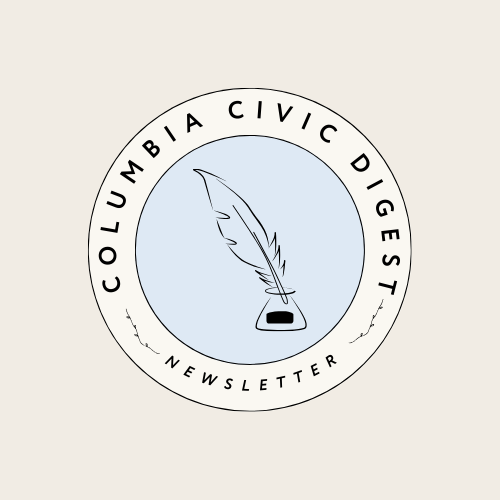Elaine Wong on Milton Friedman's Capitalism and Freedom
This essay was written by Elaine, a New York City high school senior, as part of the Freedom and Citizenship summer seminar in 2023. To read more student writing, visit the students' Civic Digest.
In Friedman’s Capitalism and Freedom, the primary argument is that a free market allows for a free society due to economic freedom placing power in the hands of everyone via economic dispersion. Friedman builds this argument by developing the relationship between economic and political freedom throughout his work. Despite economic freedom not being “a sufficient condition” for political freedom, economic freedom is able to create a path to greater political freedom. Friedman even goes as far as to argue that any semblance of political freedom in politically totalitarian governments is “because capitalism and the existence of private property provided some check to the centralized power of the state” (Friedman, 149). Essentially, Friedman is saying that because there was economic freedom, citizens were able to hold some political power, even in nations where almost all of the power was held by the government. With this point, Friedman makes clear that political and economic freedom influence one another. By showing how these two types of freedom are dependent on each other, Friedman also shows how total freedom is composed of both. To increase economic freedom is to increase political freedom, and the increase of both means that there is thus an increase in total freedom. As Friedman puts it, “On the one hand, freedom in economic arrangements is itself a component of freedom broadly understood, so economic freedom is an end in itself. In the second place, economic freedom is also an indispensable means toward the achievement of political freedom” (Friedman, 148). Friedman then uses this argument as the basis of two other major claims. These two arguments are that a free market results in individual and group freedom to enter mutually beneficial economic relationships (buying and selling), as well as allowing individuals to have the freedom to advocate for beliefs that may go against popular opinion. Both of these smaller arguments are “features of a free society” that are other facets of total freedom.
After reading Capitalism and Freedom, I can’t say that I completely agree with Friedman’s points on free market capitalism, or with free market capitalism in general. The issue I have with Friedman’s argument is that he credits capitalism with almost every freedom that people in the world possess, making his claim extremely one-sided and flat. His claims lack acknowledgement of other factors that could have played a role in those freedoms, such as history and culture. There are points, such as the one made about totalitarian governments, that feel like reaches in his arguments because of how nonsensical it is to give that much praise to an economic system. To me, this heavy reaching results in a lack of depth in his overall argument for free market capitalism. As for my thoughts on the economic system itself, I do believe that capitalism has its benefits in supporting the development of nations. This is because capitalism is a system that really has the capacity to support exponential growth in industry, with competition oftentimes creating entirely new industries that wouldn’t have existed otherwise. I would even argue that capitalism is possibly the most efficient way for a developing country to become more developed. At the same time, I think that capitalism as it exists today is very different from the capitalism that Friedman describes. Capitalism in the modern day is exactly the out-of-control capitalism that Friedman discouraged with the existence of several giant monopolies.
